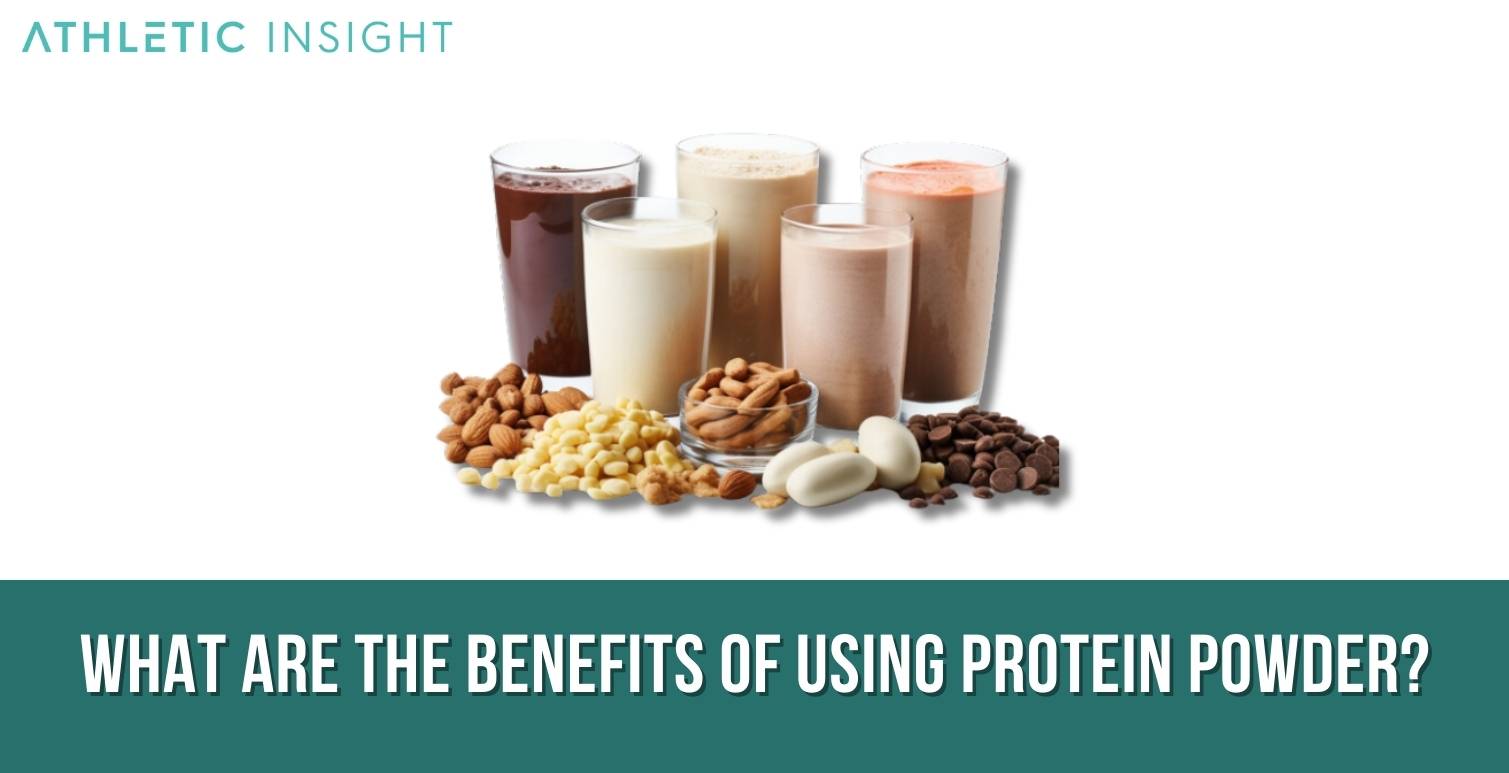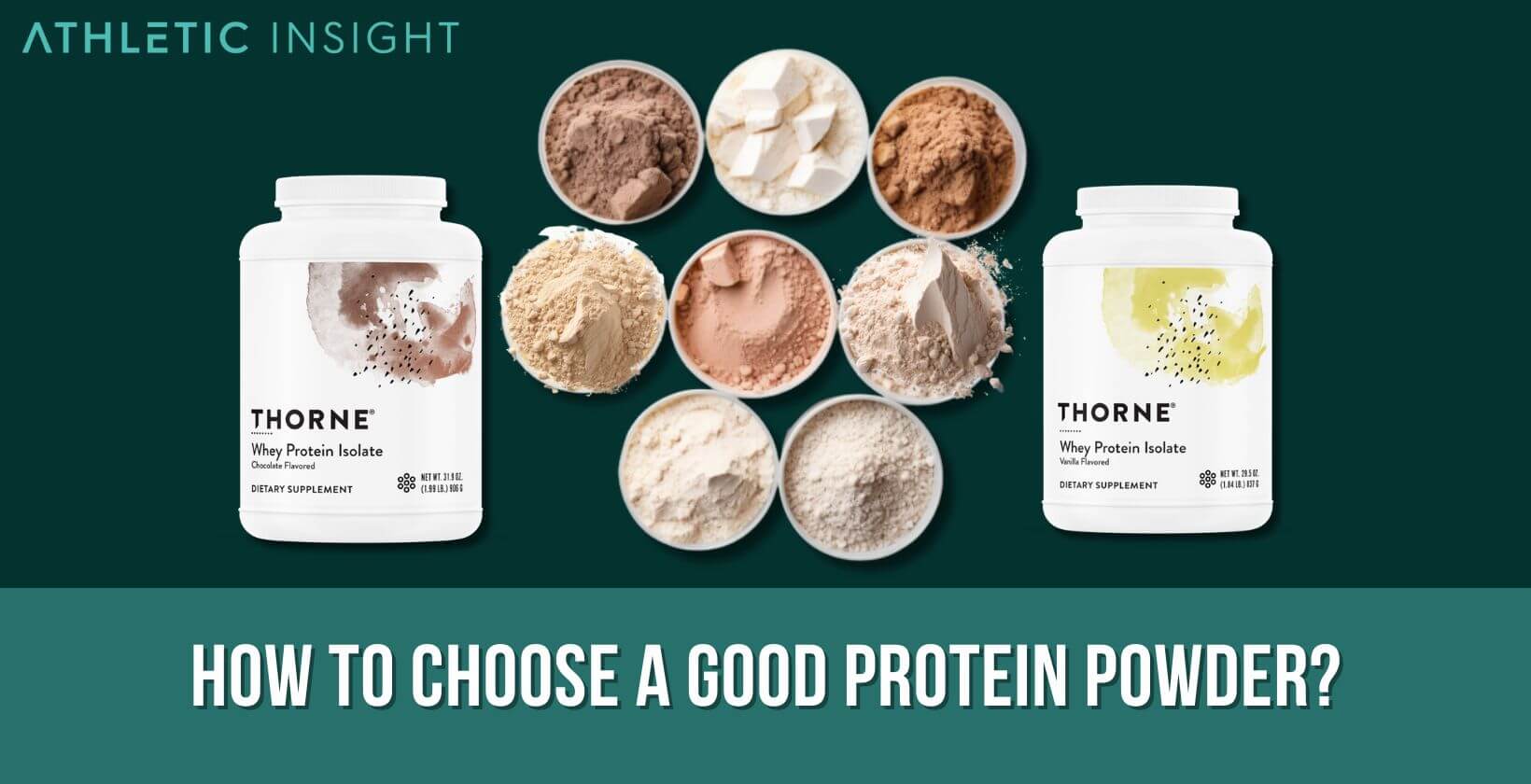Protein powders, a staple in the dietary regimen of fitness enthusiasts and health-conscious individuals alike, come in a myriad of forms and flavors. The selection process can be a labyrinthine task, given the plethora of options available in the market. This article aims to elucidate the key factors to consider when choosing a protein powder, providing a comprehensive guide to navigate this complex landscape.
From whey to plant-based proteins, each variant has its unique set of benefits and drawbacks. The choice of protein powder should be predicated on individual dietary needs, fitness goals, and personal preferences. This article will dissect the nuances of different protein sources, their nutritional profiles, and how they align with various dietary requirements and fitness objectives. It will also shed light on the importance of scrutinizing product labels for potential allergens, artificial additives, and the overall quality of ingredients.
- Examine the ingredient quality
- Check for customer reviews
- Look for a reasonable price
1. Examine the Ingredient Quality
The first step in selecting a high-quality protein powder is to scrutinize the ingredient list meticulously. This process involves identifying the primary protein source, which should ideally be a complete protein, such as whey, casein, or a plant-based blend.
Complete proteins contain all nine essential amino acids that the body cannot synthesize on its own. The protein content should be high, typically constituting more than 80% of the product’s weight.
It is also crucial to assess the presence of artificial additives, such as sweeteners, thickeners, and preservatives. A superior protein powder should have minimal to no artificial ingredients, signifying a cleaner, more natural product. The presence of digestive enzymes can also enhance protein absorption and reduce potential gastrointestinal discomfort.
Lastly, consider the sugar content; a quality protein powder should contain less than 3 grams of sugar per serving. By adhering to these guidelines, one can ensure the selection of a protein powder of exceptional quality.
2. Check for Customer Reviews
One of the pivotal steps in selecting an optimal protein powder is to scrutinize customer reviews. This process involves a meticulous examination of the experiences and feedback of individuals who have previously utilized the product. These reviews often provide a candid and unfiltered perspective on the product’s efficacy, taste, mixability, and overall quality. They can also shed light on any potential side effects or drawbacks that may not be explicitly mentioned in the product description.
It is crucial to not only focus on the overall rating but also delve into the details of both positive and negative reviews. This will provide a comprehensive understanding of the product’s performance across different parameters. It is beneficial to consider reviews from individuals with similar fitness goals or dietary restrictions, as this can offer a more personalized insight. However, it is important to approach reviews with a discerning eye, as they can sometimes be biased or manipulated. Therefore, it is advisable to consider reviews from multiple sources to ensure a balanced perspective.
3. Look for a Reasonable Price
When selecting a high-quality protein powder, it is crucial to consider the financial aspect. The first step is to establish a budget that aligns with your financial capabilities. This will provide a framework within which you can make your selection. It is important to remember that the most expensive product is not always the best. Instead, focus on the cost-effectiveness of the product. This involves comparing the price per serving, rather than the overall cost of the product. This method provides a more accurate reflection of the value you are receiving.
Consider the protein content per serving. A product with a higher protein content may be more cost-effective in the long run, even if the initial cost is higher. One should also scrutinize the ingredient list for fillers and additives, which can dilute the protein content and diminish the product’s value.
Lastly, consider the brand’s reputation and customer reviews. These can provide insight into the product’s quality and effectiveness, which are essential factors in determining its worth. By following these steps, you can ensure that you are making a financially sound decision while still receiving a high-quality product.
Why Choose Good Protein Powder?
Opting for a high-quality protein powder is a pivotal decision for those seeking to augment their nutritional intake, enhance muscle recovery, or support weight management. The process of selecting an optimal protein powder involves several key steps, each of which contributes to the overall efficacy and suitability of the product.
- The initial step involves identifying the protein source that aligns with your dietary preferences and physiological needs. This could range from whey and casein, which are derived from dairy, to plant-based options like pea or hemp protein.
- The second step is to scrutinize the ingredient list, ensuring the absence of artificial additives, sweeteners, or fillers.
- The third step is to consider the protein concentration per serving, which should ideally be high to maximize the nutritional benefit.
- Lastly, taste and mixability should not be overlooked, as these factors significantly influence the overall user experience.
By meticulously following these steps, one can ensure the selection of a protein powder that is not only nutritionally robust but also palatable and compatible with their lifestyle.
What are the signs that protein powder is good?
Identifying a high-quality protein powder involves a careful examination of several key indicators such as having a high protein content, minimal ingredients, complete amino acid formulation, easily digestible, and a great tasting, easy to mix powder.

- High Protein Content: The protein content should be high, typically constituting 80-90% of the product. This can be ascertained by scrutinizing the nutritional information on the packaging.
- Minimal Ingredients: The ingredient list should be minimal and devoid of artificial additives, sweeteners, or fillers. A good protein powder will primarily contain protein isolate, concentrate, or hydrolysate, with minimal additional ingredients.
- Complete Amino Acid Formulation: Another sign of a superior protein powder is the presence of a complete amino acid profile. This ensures that the body receives all the essential amino acids it cannot produce on its own.
- Easily Digestible: The digestibility of the protein is a crucial factor. A high-quality protein powder will be easily digestible and rapidly absorbed by the body.
- Taste and Easy to Mix: The taste and mixability of the protein powder are also indicative of its quality. A good protein powder will have a pleasant taste and will mix well with liquids without forming clumps or residues.
Where can you buy good protein powder?
High-quality protein powder can be procured from a myriad of sources, both physical and digital. Renowned health food stores, fitness centers, and even some supermarkets stock a diverse range of protein powders. However, the most extensive selection is often found online, on websites such as Amazon, Thorne, and specialized nutrition outlets like MyProtein and GNC. These platforms offer a plethora of options, catering to various dietary needs and preferences, from whey and casein to plant-based proteins.
Regarding the necessity of a prescription for protein powder purchase, it is not required. Protein powders are classified as dietary supplements, not medications. Therefore, they can be freely purchased without a doctor’s prescription.
How much will it cost for a good protein powder?
The cost of a high-quality protein powder can vary significantly, typically ranging from $15 to $50 per pound. This price disparity is contingent upon several factors, including the type of protein, the brand, and the quality of ingredients.
Whey and casein, derived from dairy, and plant-based proteins like soy, pea, and hemp, are the most common types. Premium brands often command higher prices due to their rigorous quality control, superior ingredient sourcing, and advanced processing techniques.
For instance, a pound of Optimum Nutrition Gold Standard 100% Whey, a popular choice among fitness enthusiasts, retails for approximately $30. Conversely, a pound of Vega Sport Premium Protein, a high-end plant-based option, can cost upwards of $40.
It’s crucial to note that while price can be an indicator of quality, it’s not the sole determinant. Consumers should also consider factors such as nutritional content, taste, mixability, and individual dietary needs when choosing a protein powder.
What are the Benefits of Using Protein Powder?
Protein powder, a popular supplement among fitness enthusiasts, offers a plethora of benefits. Primarily, it aids in muscle growth and repair, a process known as muscle protein synthesis. This is particularly beneficial post-workout, when the body is in a catabolic state and requires protein to repair muscle fibers.

An additional benefit of protein powder is that it can expedite weight loss efforts. It promotes satiety, reducing the likelihood of overeating and thus facilitating a calorie deficit. It has a high thermic effect, meaning the body expends a significant amount of energy digesting it, which can further contribute to weight loss.
Another advantage of protein powder is its convenience. It provides a quick and easy way to increase protein intake, especially for those with busy lifestyles or dietary restrictions that make consuming sufficient protein challenging. It can also enhance the nutritional profile of meals and snacks, fortifying them with essential amino acids.
Lastly, some studies suggest that regular protein supplementation can support immune function, although more research is needed in this area. Thus, protein powder is a versatile supplement with numerous potential benefits.
What is the Best Protein Powder?
When it comes to the pinnacle of protein powders, three contenders consistently emerge at the forefront for best protein powder: Whey Protein Isolate, Casein Protein, and Soy Protein. Each of these protein powders has carved out a niche in the fitness and health industry, offering unique benefits that cater to a variety of nutritional needs and fitness goals.
Whey Protein Isolate, for instance, is lauded for its high protein content and rapid absorption rate, making it an ideal choice for post-workout recovery. It is derived from milk and undergoes a process to remove most fats and carbohydrates, resulting in a product that is over 90% protein. This high protein concentration, coupled with its quick absorption, facilitates muscle repair and growth, thus making it a staple in the regimen of many fitness enthusiasts.
Casein Protein, on the other hand, is digested slowly, providing a sustained release of amino acids, which makes it an excellent choice for a nighttime protein source. Soy Protein, a plant-based alternative, is a complete protein that is ideal for those with dietary restrictions or preferences, such as vegans or those with lactose intolerance. Its balanced profile of essential amino acids supports overall health and muscle maintenance.



